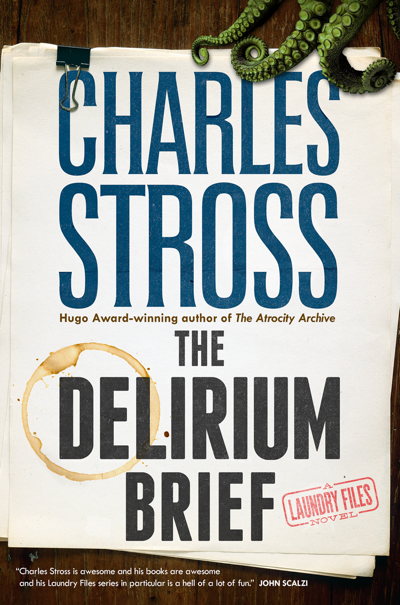Published on 8 Jun 2017
In the early morning of June 7 the area around Messines Ridge is shattered by huge explosions beneath the German positions. Miners and sappers had dug tunnels and filled them up with tons of explosives. Up to 10,000 German soldiers are killed in this inferno. At the same time, the Romanian Army seems to be in shape for an attack against the Germans again and the 10th Battle of the Isonzo continues.
June 9, 2017
The Battle of Messines – Explosion Beneath Hill 60 I THE GREAT WAR Week 150
The new Canadian defence policy – Strong, Secure, Engaged
 Unlike all the other issues that might have moved the Canadian government to finally address the weaknesses of the Canadian Armed Forces (including the immediate aftermath of 9/11, the high-tempo troop deployments to Afghanistan, escalating tensions in Ukraine and eastern Europe, and the rather embarrassing ongoing rusting-out of the RCN’s ships), Donald Trump appears to have been the trigger … and the first visible result (after Chrystia Freeland’s rather … muscular speech the other day) is the publication of Strong, Secure, Engaged [PDF].
Unlike all the other issues that might have moved the Canadian government to finally address the weaknesses of the Canadian Armed Forces (including the immediate aftermath of 9/11, the high-tempo troop deployments to Afghanistan, escalating tensions in Ukraine and eastern Europe, and the rather embarrassing ongoing rusting-out of the RCN’s ships), Donald Trump appears to have been the trigger … and the first visible result (after Chrystia Freeland’s rather … muscular speech the other day) is the publication of Strong, Secure, Engaged [PDF].
It certainly says a lot of the right things, from personnel to equipment to training and deployment, but as always with a big government announcement, the devil will be in the details. From Defence minister Harjit Sajjan’s introduction:
The pages that follow detail a new vision for the Defence team for the coming decades. It is about our contribution to a Canada that is strong at home, secure in North America, and engaged in the world. In a rapidly changing and less predictable world, we recognize that the distinction between domestic and international threats is becoming less relevant. Therefore, we cannot be strong at home unless we are also engaged in the world.
The policy also includes a new framework for how we will implement that vision. “Anticipate, Adapt and Act,” sets out a way of operating that addresses the challenges we face today, and the ones that will emerge tomorrow.
Canadians take pride in their Armed Forces, and its members serve their country admirably every day. Whether it is responding to natural disasters, providing expert search and rescue, defending our sovereignty, or contributing to greater peace and security in the world, our military answers the call wherever and whenever it occurs
So, along with all the verbiage, what is the new policy going to mean for the Canadian Forces?
This is the most rigorously costed Canadian defence policy ever developed. It is transparent and fully funded. To meet Canada’s defence needs at home and abroad, the Government will grow defence spending over the next 10 years from $18.9 billion in 2016-17 to $32.7 billion in 2026-27.
Charles Stross provides a crib sheet for his latest Laundry novel
As he’s done for several of his books, Charles Stross gives some interesting background on The Delirium Brief, the latest book in the Laundry series of spies-meet-H.P. Lovecraft stories:
The Delirium Brief (US edition)
It should be fairly obvious by now that, although initially the stories were set in the same year as publication, the Laundry universe has now dropped behind the real world calendar and diverged drastically from our own history. The Annihilation Score was set during the summer of 2013, in a UK suffering from a surplus of superheroes (or at least extradimensional brain-eater afflicted humans experiencing outbreaks of eldritch powers before their heads exploded: some of whom assumed that donning skin tight lycra and committing vigilante crimes was a sensible reaction to being parasitized). It reached a conclusive and grisly climax in the massacre at the Last Night of the Proms, an annual British cultural event; a horrible event the true nature of which was, nevertheless, suppressed and presented to the public as a terrorist incident not unlike the Moscow theater hostage crisis of 2002. At the end of The Annihilation Score the Laundry’s cordon of secrecy was in tatters but plausible deniability had been maintained—barely.
The Nightmare Stacks takes place in March-May 2014, and is the story of how the continually escalating threats faced by the Laundry finally overcame the agency’s ability to suppress and contain incursions without public notice, and is the first half of a two-book pivot point in the series (the ongoing consequences of the disaster in Leeds continue to the inevitable conclusion in The Delirium Brief); it’s the beginning of the tumble over the cliff-edge leading down to the Lovecraftian Singularity.
And we have a new narrative viewpoint, and sundry new protagonists showing up.
Many readers commented on the absence of Bob from The Annihilation Score and The Nightmare Stacks. Bob is back as the primary (but not the only) viewpoint in The Delirium Brief, but we’ve reached a point in the series where he has to be deployed with extreme parsimony. After fourteen years in the Laundry Bob is, despite his ongoing self-deception, not entirely human: watch what he does, not what he says. In The Rhesus Chart he walked into a nest of vampires and came out with his hair mussed but basically intact. You can’t use a guy like that routinely in an ongoing series without either sacrificing the sense of jeopardy (will our hero survive?) or escalating the threats he faces drastically. So Bob took a break for The Nightmare Stacks and was replaced by a plausible Bob 2.0 — a young PHANG called Alex Schwartz, introduced as a minor character in The Rhesus Chart.
[…]
Spoiler (for the record): The Laundryverse and the Merchant Princes multiverse do not coexist in the same fictional universe. (Who do you think I am, the elderly Robert A. Heinlein?)
Can my dog understand me? – James May Q&A (Ep 34) – Head Squeeze
Published on 16 Aug 2013
Sit, Fetch, Lie Down! James May answers Luke from Durham Johnston Comprehensive’s question on whether dogs can understand humans.
Links
The British Science Association: http://www.britishscienceassociation.org/National Science + Engineering Competition: http://www.nsecuk.org
Can dogs understand words: http://animal.discovery.com/pets/dogs-understand-words.htm
Shame your pet: http://www.shameyourpet.com
QotD: The post-war world and (relative) peace
Between 1945 and about 1965, atom bombs and then hydrogen bombs were devised and demonstrated by the two biggest Great Powers, and then manufactured and attached to rockets in sufficient numbers to cause any all-out war between these two superpowers very probably to be a catastrophic defeat for both, to say nothing of being a similar catastrophe for all other humans, within a few hours. This new kind of destructive power also spread to a small club of lesser Great Powers.
This did not happen overnight. It didn’t all come about in 1945. But it happened pretty quickly, historically in the blink of an eye. It changed the world from a place in which Great Wars between Great Powers had to be prepared for, at all costs, to a place in which Great Wars between Great Powers had to be avoided, again, at all costs. That is a very big change.
I do not assert that all wars have ended. Clearly they have not, as one glance through a newspaper or news website will tell you. Small powers still have small wars, and Great Powers regularly join in, in small ways. Sometimes, Great Powers start small wars, like the one in the Ukraine now. But even these small wars have been getting less numerous and smaller in recent decades. Small wars can get big, so even small wars are now discouraged by Great Powers.
Nor do I assert that all preparations for war by Great Powers have ceased, or that they should. But more than ever, the purpose of such preparations is to enable mere confrontations to be emerged from victoriously or failing that satisfactorily, rather than for such preparations — such weapons — constantly to be “used”, in the sense of being fired, fought with, and so on. The purpose of weapons is to scare, as well as to win fights, and they are being “used” whenever anyone is scared by them. Great Powers will still spend lots of money on weaponry.
But what has not happened, for many decades now, and what still shows no sign of happening despite all kinds of diplomatic, ideological and financial turbulence, is an all-out fire-every-weapon-we-have war involving two or more Great — by which I of course mean nuclear — Powers. In this sense, countries like mine, and almost certainly yours too given that you are reading this, have become peaceful in a way that they have never experienced before in all of human history before 1945.
Brian Micklethwait, “From the Great Peace … to the ordeal of Adam Lyth at the Oval cricket ground”, Samizdata, 2015-08-20.



